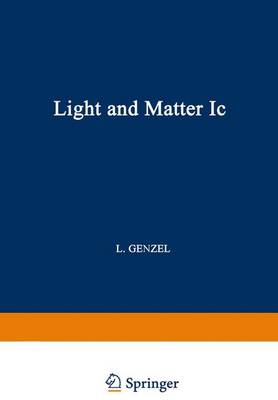Handbuch der Physik / Encyclopedia of Physics / Optik / Optics
1 total work
The concept of the laser came into existence more than a decade ago when ScHAWLOW and TowNES showed that the maser principle could be extended to the optical region. Since then this field has developed at an incredible pace which hardly anybody could have foreseen. The laser turned out to be a meeting place for such different disciplines as optics (e.g. spectroscopy), optical pumping, radio engineering, solid state physics, gas discharge physics and many other fields. The underlying structure of the laser theory is rather simple. The main questions are: what are the light intensities (a), what are the frequencies (b), what fluctua- tions occur (c), or, in other words, what are the coherence properties. Roughly speaking these questions are treated by means of the rate equations (a), the semiclassical equations (b), and the fully quantum mechanical equations (c), respectively. The corresponding chapters are written in such a way that they can be read independently from each other. For more details about how to proceed, the reader is advised to consult Chap. I.4.
